
 Flash News
Flash News
Son injured minor with knife, 14-year-old's mother: She came home with the police
DP protest/Police officers on the ground, metal fence installed
Fight between teenagers in Maliq, 15-year-old injured with knife
EC President from Tirana: The world order is being undermined, Ukraine's security is the EU's security
Arrested for the Dobraç massacre, GJKKO releases Xhuljo Vuksan from prison
Promises that remained on paper! Dibra Hospital still unfinished
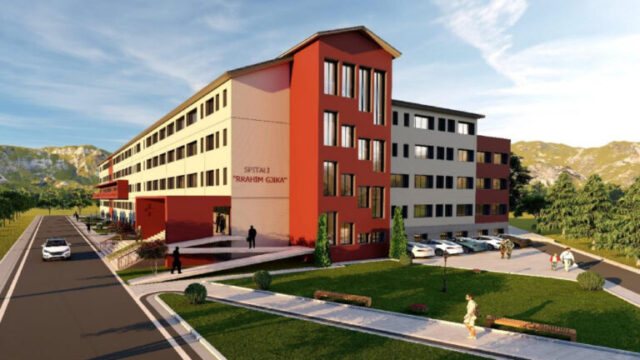
In 2023, it was promised that the “Rrahim Xhika” Regional Hospital in Dibër would be reconstructed within two years. Today, two years later, no work has started. The tender has been canceled, while the hospital building continues to be in a deplorable condition – with cracked walls, mold and a lack of specialist doctors.
To cope with the situation, retired doctors have been hired. Meanwhile, patients are forced to use private services for tests and examinations, due to a lack of capacity.
According to health expert Erion Dasho, this is clear evidence of the government's superficial engagement in the health sector as currently technology and services have deteriorated, deepening the gap between regional hospitals and the "Mother Teresa" University Hospital Center in Tirana (QSUT).
It was May 2023 , when ministers Ogerta Manastirliu - then Minister of Health - and Belinda Balluku presented to the medical staff of Peshkopia Hospital images of what the wards would look like after the complete reconstruction from the 3.2 million euro project.

"There will be European infrastructure parameters, making it possible for us to have a hospital that will integrate pediatrics, gynecology, imaging, laboratory, pathology, surgery, operating room and resuscitation services into a unique structure," declared Manastirliu.
About 8 months later, in January 2024, the new Minister of Health, Albana Koçiu, declared that work on the reconstruction of the hospital would begin within a few weeks, but more than a year has passed and the work has not started, on the contrary.
Cancellation of the hospital tender
In 2023, a tender procedure for the reconstruction of the "Rrahim Xhika" hospital, where the winner was announced as "Rafin Company" in partnership with "Udha shpk", with a bid of 2.9 million euros and a work deadline of 24 months.
In March 2024, the tender was canceled, but in December the Public Procurement Agency announced it anyway. conclusion of the contract with two operators.
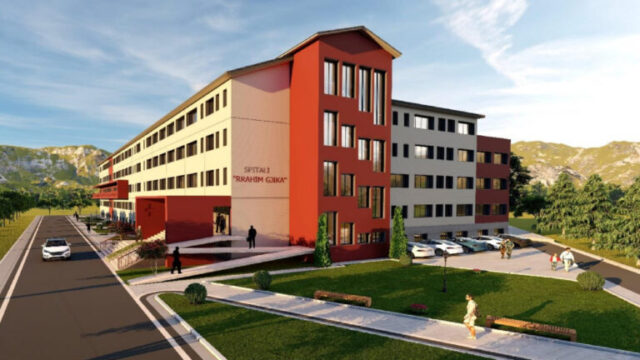
Asked about this situation, the Dibër Regional Hospital said that "the procedure has been suspended by decision of the High Court following a request from the Public Procurement Commission ." According to the hospital's response, there has been a court case against one of the companies, while there is no date for when the works are expected to begin.
Patients: Hospital conditions miserable
Those who are suffering the consequences of this situation are the residents of Dibra. They point to unacceptable conditions in the hospital: cracked walls, humidity, lack of hygiene and lack of ventilation in the rooms. Many of them have to spend money in private hospitals for the most basic tests.
"No work has been done to date. The hospital walls are cracked and very moldy. The state of hygiene and cleanliness is scandalous. The hospital toilets are a disaster, especially the hospital emergency room, very bad," raises concerns Izeti, a resident of Peshkopia.
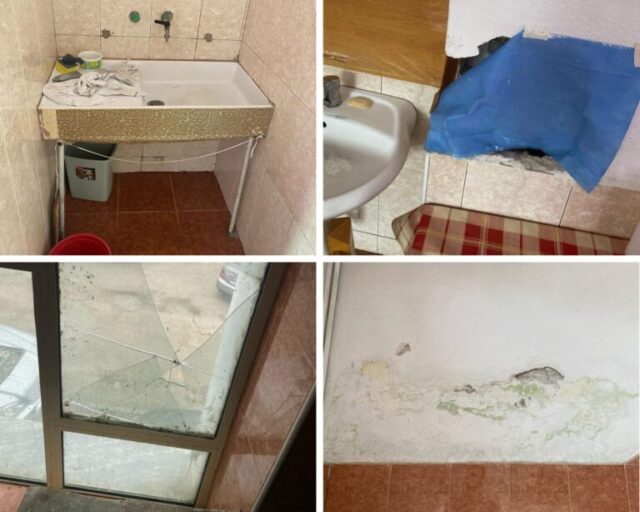
Drita also has the same concern, stating that the hospital's condition is deplorable.
"The conditions are not good at all. The hospital is very humid, the treatment rooms are not ventilated," says the 54-year-old.
In addition to the conditions, patients also complain about the lack of services provided at this hospital.
"I had the tests done privately for 40 thousand lekë (400 euros), because they didn't do them for me at the hospital in Peshkopi. In Tirana and Peshkopi, wherever you go to the hospitals, they are for 'ibret'," adds Drita.
For health expert Erion Dasho, regional hospitals in Albania have a major common problem, as they were built before the '90s.
"They were built according to a Soviet concept of the time. This concept no longer matches the contemporary concept of healthcare provision, which is based on vertical hospitals and efficient communication between different service departments."
"The second major problem of regional hospitals is that these hospitals do not have the real status they should have. A number of services are centralized in the QSUT," Dasho emphasizes.
He further adds that the government's contribution has been largely superficial in the health system, while technology and real conditions have deteriorated, deepening the gap between regional hospitals and the QSUT.
"The government's only contribution is that it painted the walls and laid the tiles," Dasho emphasizes.
According to him, at first glance, conditions seem to have improved. But technology has not improved, and has even lagged behind.
"If we look at how many new medications are introduced, how many new technologies have been introduced, how many new surgical intervention techniques have been introduced, I would say that conditions have only worsened and the disparity between regional hospitals and the QSUT has only increased," argues Dasho.
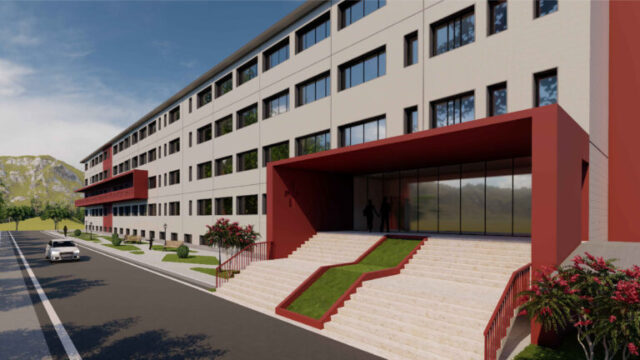
Lack of doctors at the Dibër regional hospital
As if the difficult conditions in this hospital were not enough, patients must also deal with the lack of specialist doctors. This problem is even acknowledged by the hospital itself in its official response.
According to information, the "Rrahim Xhika" regional hospital has a shortage of specialist doctors: 1 dermatologist; 1 surgeon, 1 pediatrician, 1 head of the infectious pediatrics clinic, 1 doctor for the methadone treatment unit, etc.
According to patients, due to the shortage of doctors, retired doctors provide services at this hospital.
"There are some doctors who have retired, but they are on duty at the hospital because there are no other doctors to replace them. There are no new doctors at the hospital, they are over 70 years old," says Dilaveri, a resident of Peshkopia.
Referring to official data from the Dibër Regional Hospital, the retired doctors are in the general service (2 doctors); in the neurology clinic (1 doctor) and in the resuscitation service (1 anesthesiologist-resuscitator).
According to Erion Dasho, regional hospitals have been severely affected by the departure of doctors, leaving them without important specialties or relying on retired doctors, who are also included in official statistics.
"Most regional hospitals either have very important specialties not covered or are forced to extend the contracts of retired doctors, and today when we say that there is a certain number of doctors per 1,000 inhabitants, retired doctors are also counted here," Dasho said./ /Citizens.al
Latest news


Sali Berisha joins the protest
2025-05-16 18:41:56
Opposition protest, Bylykbashi: This electoral system must definitely change
2025-05-16 18:35:49
Will Berisha resign? Topalli: Hasty decisions are not made in times of boredom
2025-05-16 18:28:27

"Big" Summit, shops locked and citizens stranded
2025-05-16 18:10:04
Will Meta resign from his mandate to enter parliament? Tedi Blushi answers
2025-05-16 17:57:59
Opposition protest, Këlliçi: Rama will not enjoy the stolen mandate
2025-05-16 17:48:34

Noka from the protest: Rama and his gang will not have peace
2025-05-16 17:40:21
The protest announced by the opposition begins: We want our votes!
2025-05-16 17:25:40


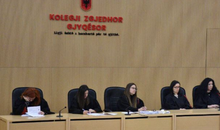
Electoral College rejects DP's request for Greek votes
2025-05-16 16:36:27
DP protest/Police officers on the ground, metal fence installed
2025-05-16 16:35:50


Rama's white sneakers caught Erdogan's attention, here's what he said
2025-05-16 16:05:22

Tabaku deepens the result against Alimehmet
2025-05-16 15:51:49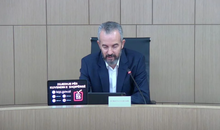
CEC decides on Greek envelopes: Vote counting to continue
2025-05-16 15:40:38
INSTAT: Population decline continues in Albania
2025-05-16 15:35:01
Rama's gala at the summit turns European leaders into children with AI
2025-05-16 15:21:17
Meloni calls Edi Rama's victory in the elections "unexpected"
2025-05-16 15:16:52


Trump: Nothing will happen in Ukraine without a meeting between me and Putin
2025-05-16 14:51:45
Fight between teenagers in Maliq, 15-year-old injured with knife
2025-05-16 14:51:40






Rock slide on the Burrel-Rrëshen axis, obstructing vehicle traffic
2025-05-16 13:26:39
Rama 'forces' European leaders to sign the star of the SP campaign
2025-05-16 13:14:41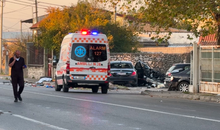
Arrested for the Dobraç massacre, GJKKO releases Xhuljo Vuksan from prison
2025-05-16 12:58:55
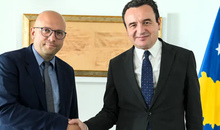
Germany dismisses Western Balkans envoy, DW: New government has started cuts
2025-05-16 12:36:21

Did he reunite with Casey or not? Stress clarifies it once and for all
2025-05-16 12:19:17
Was 'Mali' impregnated and gave birth to an 'Albania'?
2025-05-16 12:17:08
Zelensky arrives at the summit of the European Political Community
2025-05-16 11:55:44


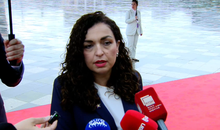

Promises that remained on paper! Dibra Hospital still unfinished
2025-05-16 11:11:40
Video/ The cold meeting between Rama and Vučić at the EU Summit
2025-05-16 11:00:41

Who is 'crying' for the DP?
2025-05-16 10:30:28


'Bloomberg': European leaders to discuss migration at summit in Albania
2025-05-16 10:01:21

The Democratic Party protests today on the New Boulevard
2025-05-16 09:28:21


Love in the spotlight/ Astrological forecast for each sign
2025-05-16 08:59:02
DW: Tirana hosts the European Political Community summit
2025-05-16 08:44:59


Cloudy and rainy weather forecast for today
2025-05-16 07:53:38
Morning Post/ In 2 lines: What mattered yesterday in Albania
2025-05-16 07:40:58



Tirana towards the end of the count, Tabaku leads Alimehmet
2025-05-15 21:51:53

Trump says US would make Gaza a "zone of freedom"
2025-05-15 21:15:08

CEC limits observer accreditation for diaspora votes
2025-05-15 20:40:04
Anti-drug operation in Korça, two people in handcuffs
2025-05-15 20:17:19

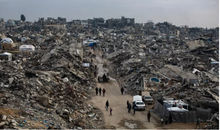
New Israeli bombings in Gaza, over 100 killed in 24 hours
2025-05-15 19:33:16

Albanian caught with 940 thousand euros at the border
2025-05-15 18:40:06

Antonio Costa does not have a date for Albania's EU membership
2025-05-15 18:01:12
Is BiH losing control over its armed forces?
2025-05-15 17:54:41

53-year-old Albanian man enters plane with gun in US, moment he is arrested
2025-05-15 17:30:59

Celibashi arrives at CEAZ 30 after the serious incident
2025-05-15 17:14:48
With a European passport, but without IPARD funds for agriculture
2025-05-15 17:02:43

Coup in Yrshek/ Rei Nozlli, son of the Commissariat agent 2
2025-05-15 16:46:04
Elections, Lela: What has happened is threatening the fate of Albania's future
2025-05-15 16:30:48




Diaspora vote, counting of envelopes for 5 districts closes
2025-05-15 15:35:35



Preferential votes, 5 socialists in the race for two mandates
2025-05-15 14:47:21
